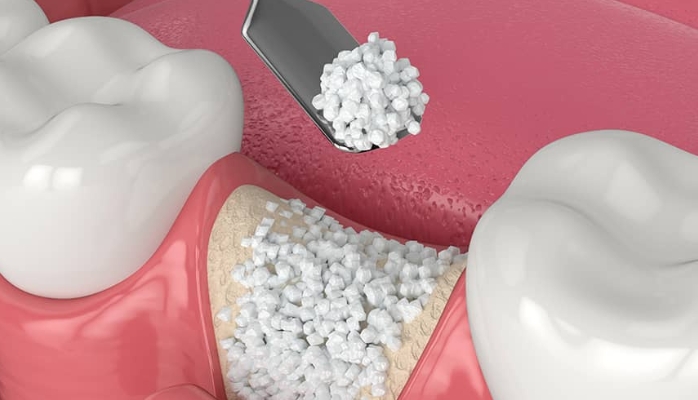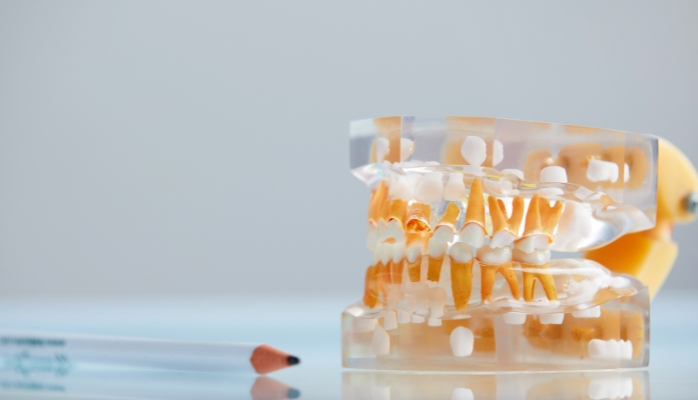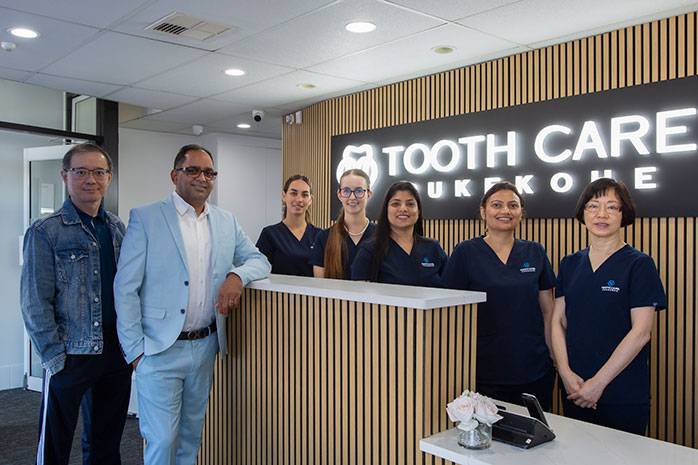Bone Grafting
Bone Grafting at Tooth Care Pukekohe
At Tooth Care Pukekohe, we understand the importance of a healthy, stable foundation when it comes to dental implants. If you’ve experienced significant bone loss in your jaw due to tooth loss, trauma, or certain dental conditions, bone grafting may be a necessary step to ensure the success of your dental implant treatment.
What is Bone Grafting?
Bone grafting is a surgical procedure that involves adding bone material to the jaw to encourage new bone growth. This process strengthens the jawbone, creating a solid base to support dental implants. Without enough bone, implants may not properly integrate, or they may fail altogether. By using bone grafting techniques, we can restore the structure and density of your jawbone, making dental implants a viable option for you.


What is Bone Grafting?
Bone grafting is a surgical procedure that involves adding bone material to the jaw to encourage new bone growth. This process strengthens the jawbone, creating a solid base to support dental implants. Without enough bone, implants may not properly integrate, or they may fail altogether. By using bone grafting techniques, we can restore the structure and density of your jawbone, making dental implants a viable option for you.

Why Do You Need Bone Grafting?
When a tooth is lost, the bone that once supported it begins to deteriorate over time due to a lack of stimulation. This can lead to a weakened jawbone, which may not be thick or dense enough to support a dental implant. Other factors, such as gum disease, infection, or trauma, can also contribute to bone loss. In these cases, bone grafting is an essential procedure to rebuild the jawbone and ensure that the implant can properly fuse with the bone, a process known as osseointegration.
Types of Bone Grafts
Based on the extent of your bone loss, there are several types of bone grafts available, as outlined below:
1. Autografts: Bone is taken from another area of your body (such as your chin, jaw, or hip) and placed where the bone is deficient.
2. Allografts: Bone is sourced from a human donor, processed, and used to stimulate new bone growth in your jaw.
3. Xenografts: Bone material is sourced from animals, typically bovine (cow) bone, which is carefully processed to be compatible with human tissue.
4. Synthetic Bone Grafts: Artificial materials that promote bone regeneration can be used as an alternative to natural bone sources.


Types of Bone Grafts
Based on the extent of your bone loss, there are several types of bone grafts available, as outlined below:
1. Autografts: Bone is taken from another area of your body (such as your chin, jaw, or hip) and placed where the bone is deficient.
2. Allografts: Bone is sourced from a human donor, processed, and used to stimulate new bone growth in your jaw.
3. Xenografts: Bone material is sourced from animals, typically bovine (cow) bone, which is carefully processed to be compatible with human tissue.
4. Synthetic Bone Grafts: Artificial materials that promote bone regeneration can be used as an alternative to natural bone sources.

The Bone Grafting Procedure
The procedure itself is typically performed under local anaesthesia or sedation to ensure you are comfortable throughout the process. Depending on your individual needs, the bone grafting procedure may be done in a single appointment or spread over multiple visits. After the graft is placed, it will gradually integrate with your natural bone over time, usually taking a few months to fully heal. Once sufficient bone growth has occurred, your dental implants can be placed.
What to Expect After Bone Grafting
Following the procedure, you may experience mild swelling, bruising, or discomfort, which can usually be managed with over-the-counter pain medications. We will provide you with specific aftercare instructions to help promote healing and minimize any potential complications.


What to Expect After Bone Grafting
Following the procedure, you may experience mild swelling, bruising, or discomfort, which can usually be managed with over-the-counter pain medications. We will provide you with specific aftercare instructions to help promote healing and minimize any potential complications.

Why Choose Tooth Care Pukekohe for Bone Grafting?
Our experienced dentists at Tooth Care Pukekohe are highly skilled in bone grafting techniques and committed to providing personalized care throughout your treatment journey. Whether you need bone grafting to support a dental implant or to restore the function and appearance of your smile, we are here to help you every step of the way.
If you’re considering dental implants but have concerns about bone loss, we invite you to schedule a consultation. Our team will assess your unique needs and discuss the best options available to restore your oral health and confidence.
Contact Us Today!
If you’re ready to take the next step towards restoring your smile with dental implants, or if you have any questions about bone grafting, contact Tooth Care Pukekohe today to schedule a consultation. Let us help you achieve the healthy, beautiful smile you deserve.